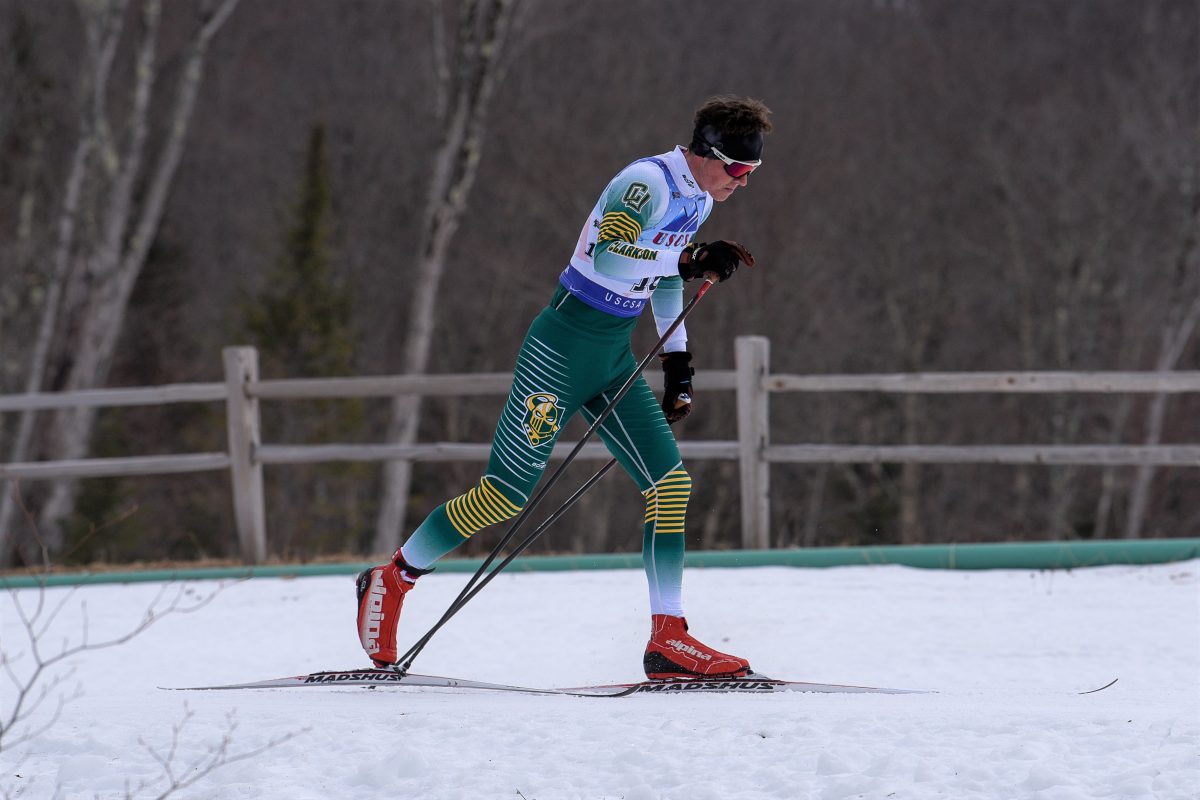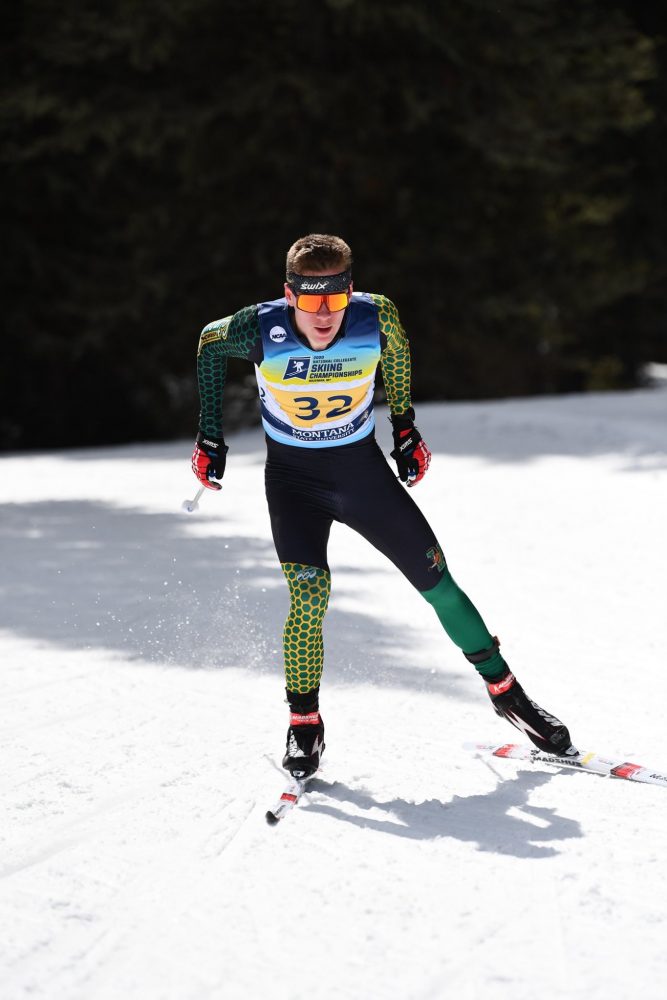
With current temperatures in Beitostølen, Norway hovering a few degrees above freezing, chances are the first World Cup of the season, scheduled to take place November 19 – 20, will be canceled or moved to a new venue. The International Ski Federation (FIS) has until Wednesday to make the call according to competition rules.
“I would say the chances for Beitostølen are 10% and for Sjusjøen, [Norway] 40%,” said cross-country race director Jürg Capol via email.
If the decision is to cancel, which has happened four other times in Capol’s tenure, he confirmed that FIS wouldn’t be able to reschedule the opening races. There are simply no gaps in the 2011-2012 World Cup calendar.
Sjusjøen, which lies about 20 k east of Lillehammer, is set to host the Nordic Combined World Cup on December 3 and 4, and has already put down a base of manmade snow. Johannes Haukåssveen, a race organizer at Sjusjøen, said on Monday that with additional snow guns borrowed from Sweden and Italy, the venue could produce snow at twice their normal capacity.
Beitostølen attempted to set a base of artificial snow over the weekend, but a combination of warm weather and high humidity prevented it from sticking. According to logistics manager Erik Østli, the temperature was hovering around half a degree above freezing in the stadium, and they need at least two degrees below in order to produce snow.

Östersund, Sweden was originally considered as another alternative, as the venue has a stockpile of snow, but it declined to host the opening cross-country races in favor of saving up for the Biathlon World Cup taking place there November 28 – December 4.
At this point, Capol thought things didn’t look too promising. Langrenn.com reported earlier today that Terje Lund, events manager for the Norwegian Ski Federation, will inspect the course at Sjusjøen to evaluate the viability of holding a World Cup there in less than two weeks. FIS rules state that a World Cup must be cancelled no fewer than nine days before the event. Under “extraordinary” circumstances, however, FIS can make the decision as close as six days prior.
On Wednesday morning, FIS announced it would delay the decision until Thursday afternoon. “The Norwegian Ski Federation is evaluating together with the organizing committee all possible solutions to host the Cross-Country World Cup opening in Norway,” said Capol in a press release.
If the races are moved to Sjusjøen, Capol said that certain exceptions to FIS competition rules may be made in case of critical snow, particularly with regard to homologation standards.
“We might adapt the courses and this has happened before, but nevertheless we still follow the basic requests for the courses and stadium,” he explained.
U.S. and Canadian Ski Teams Adjust
Though race cancelations present a setback for every team on the circuit, a schedule change is more difficult for the teams crossing the Atlantic. The majority of the U.S. Ski Team (USST) had planned on departing for Europe over the weekend and competing in the Norwegian opening races at Beitostølen originally scheduled for November 11- 13.
Those events were canceled last Wednesday, and most athletes and coaches decided to delay travel for another week. Andy Newell, Simi Hamilton and Noah Hoffman rerouted their flights to Sweden and arrived Monday afternoon in Torsby, getting their first glimpse of the indoor ski tunnel today.
USST head coach Chris Grover said that the main issue for athletes, in deciding whether to stay at home later or leave for Europe on schedule, was balancing the quality of training with having enough time to recover from travel and adjust to a significant time zone change.
Newell, Hoffman and Hamilton decided to leave earlier for the Torsby Ski Tunnel, but remaining USST athletes originally planning on entering the first World Cup—Kikkan Randall, Liz Stephen, Sadie Bjornsen, Kris Freeman and Tad Elliot—opted to remain stateside. Ida Sargent has been in Muonio, Finland since October 31 with Craftsbury Green Racing Project (CGRP) teammates, and will join the USST according to the outcome of FIS’s decision.
“For the Alaska people it was a no-brainer, they’re already on snow,” said Grover. “Liz, Kris, and Tad felt like they could get the right work done at home.”
Freeman said his decision to stay in New Hampshire was fairly straightforward.
“I figured out a while ago that it’s better to stay home than chase crappy snow,” he said. “You can waste a lot of energy that way. It’s better for me to stay in one place and rollerski.”
Hamilton’s initial report from Torsby indicated that the skiing in the tunnel is repetitive, but Newell said in an email today that it was still better than nothing.
“It’s still nice to make the transition on a non-race week, which is why some of us came over despite the snow conditions,” he wrote. Though testing skis can be difficult in cases like this, Newell said he and his teammates are not unused to relying on old skis for the first weekend.
“It’s going to suck if they cancel the entire first weekend of World Cups, but there’s bound to be some kind of racing going on in Sweden or Norway somewhere, so we’ll find it,” he concluded.
The Canadian National Ski Team (CNST) is already in Europe, and is currently skiing in Östersund. Conditions aren’t great: “It’s really dirty, and there are strips of snow that you can double pole across,” said head coach Justin Wadsworth. Stuck without their own rollerskis, athletes are doing off-snow training with borrowed equipment.
As of right now, the CNST is planning on racing Sweden’s domestic opener at Bruksvallarna. Three races have already been cut down to two, but on Monday race organizers said they would be able to maintain the 2.5 k of existing artificial snow for one men’s and one women’s freestyle race.
“[Petter] Northug is scheduled to come,” said Wadsworth. “It should be a good race if they can pull it.”
Wadsworth said he doesn’t see the possible World Cup cancellation as a problem for his athletes outside of logistics.
“We’ve been skiing since October 15 [on Frozen Thunder], so that’s good,” he said. “That’s going to be a bonus once we get started.”
North American or no, teams all over the world are holding their breath for FIS’s decision. Until then, as Wadsworth said, everyone is “waiting to see what the hell we’re going to do.”
— Kieran Jones and Topher Sabot contributed reporting.
Audrey Mangan
Audrey Mangan (@audreymangan) is an Associate Editor at FasterSkier and lives in Colorado. She learned to love skiing at home in Western New York.



